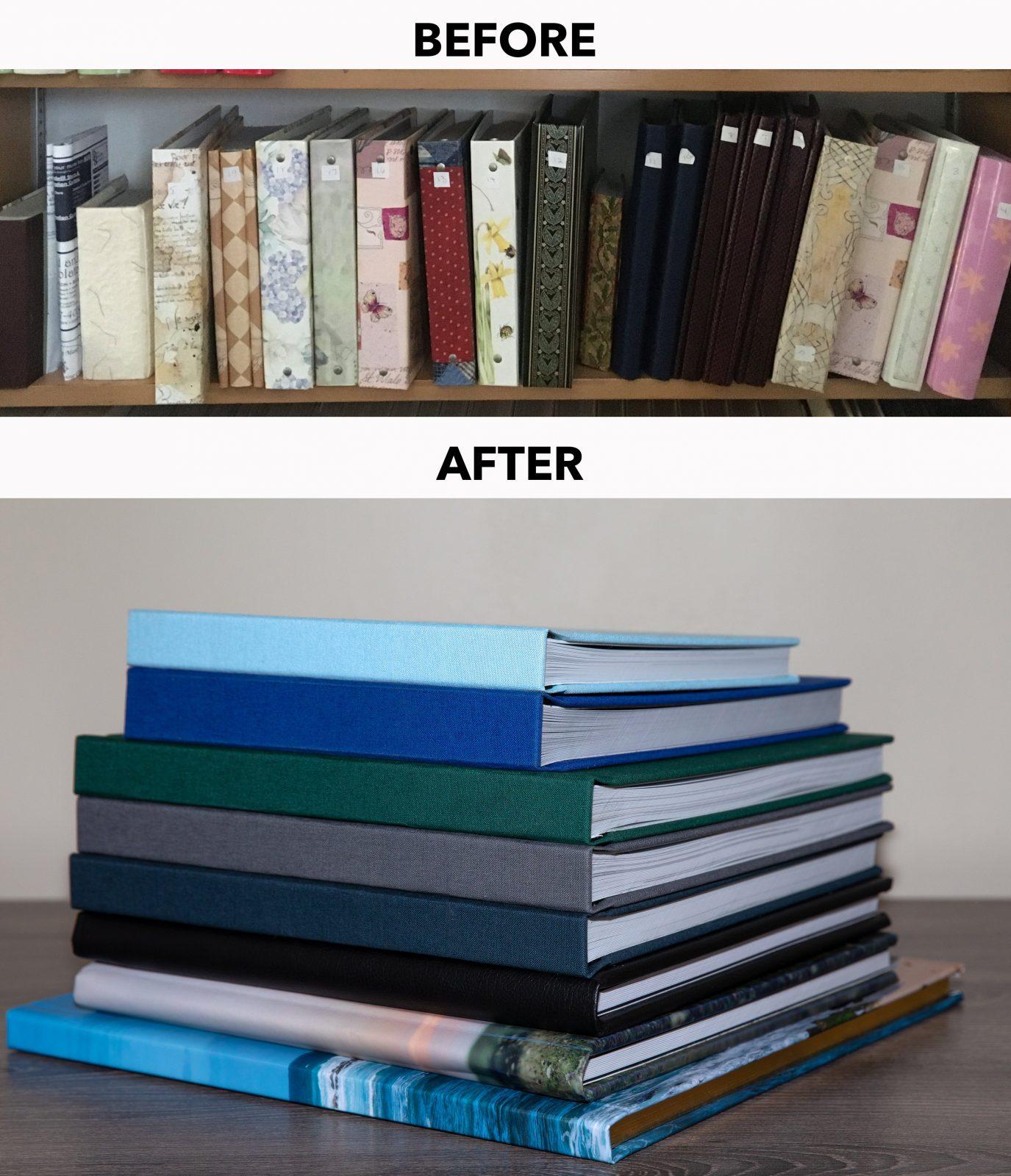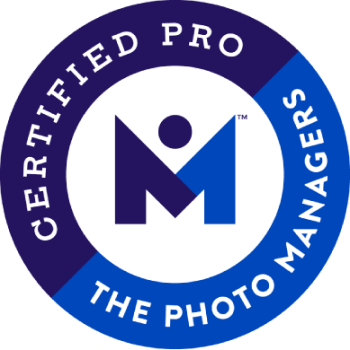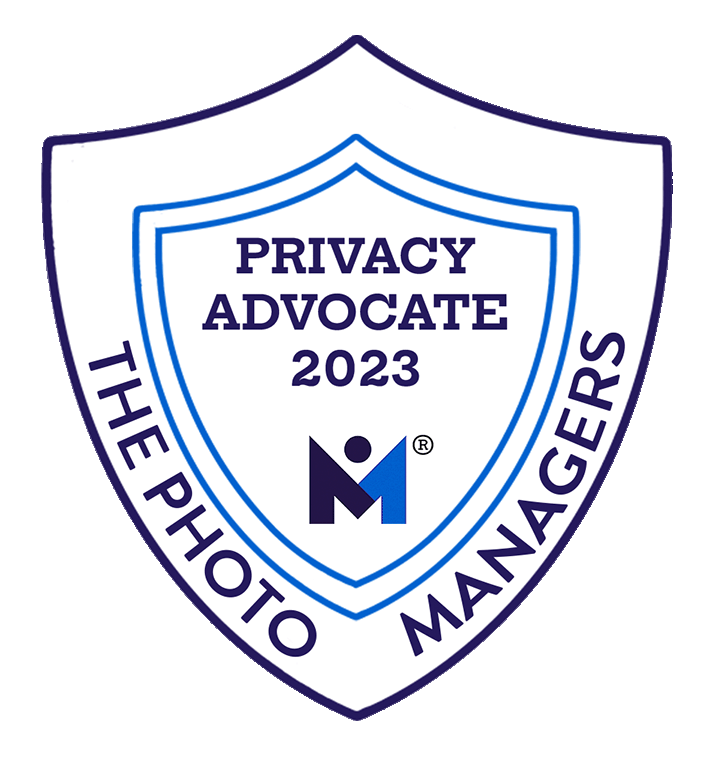Photo Books vs Photo Albums: Which is Better and Why

Photo Books vs Photo Albums: Which is Better and Why
Some people mistakenly believe that print photo albums and photo books are different names for the same thing. While they share many similarities, they differ in significant ways.
Print photo albums contain physical print photos placed in plastic sleeves in a book or binder.
Photo books are custom made, bound books with digital images embedded into photographic paper, akin to a magazine or coffee-table book.
Parents and grandparents often hand down print photo albums through generations. You may have inherited several, as well as created a few of your own.
The biggest drawback of print photo albums is their bulk. Another issue is that you can’t see what’s what’s written on the back of the photos. The albums from the 1980s and 90s can be problematic, too. Especially if made of “magnetic” pages (i.e. chemical sandwiches that slowly destroy the emulsion of the photos).
Vintage photo albums can be quite delicate and in need of archival preservation (as well as needing to have their contents scanned!)
Photo books are comprised of curated digital images arranged via the publisher’s software. You can enhance photos using color correction, enlarging, adding text, and a variety of decorative effects. There are a variety of paper options and different thicknesses and finishes.
Covers are customizable (options depend on the publisher). And while the quality varies, styles range from magazines to heirloom-quality bound books.
Time and Quantity
When creating photo albums or photo books, the time necessary to complete either one can vary, depending on your goals.
Filling both items can take up substantial chunks of time. When adding print photos to a photo album, you must first curate your images, choose the correct size prints, then physically insert them into the pages of the album.
This can be a tedious and time-consuming task, and the amount of images you can use depends on the amount of room in the book.
Photo books can take less time, since you essentially just click and drag digital images where you want them to go. If you are unfamiliar with the publisher’s software, it can be more time-consuming than initially expected. On the plus side, you are in control of how many images you want to use and how many pages the book has (most have a 10 page spread minimum). Milk Books has a premium line that allows up to 300 pages!
Customization
You can customize both print albums and photo books in various ways.
With print photo albums, you can change the final product as many times as you like. For example, if you decide to change the photo placement, you can easily do it by hand.
Photo books are permanent. To change the design of your book, you’ll have to reprint it, although making changes is possible for future editions. You can change the layout and add unique touches into new copies.
Conclusion
While photo books are typically more expensive (depending on size, paper and cover material), they take up less space, can give new life to old photos and become treasured family heirlooms – especially if they include family stories and history integrated into the book.
Photo albums are useful for holding original prints (if archival quality) and are usually less expensive than photo books. We love the albums from Kolo, especially their Newport scrapbook-style version. An added bonus is that you can physically write on the pages.
Want help with creating your own photo book? Let’s talk!
Recent Posts
Archives
- February 2024
- January 2024
- December 2023
- November 2023
- October 2023
- September 2023
- July 2023
- June 2023
- March 2023
- February 2023
- January 2023
- October 2022
- September 2022
- August 2022
- July 2022
- May 2022
- March 2022
- February 2022
- December 2021
- June 2021
- April 2021
- February 2021
- December 2020
- November 2020
- October 2020
- September 2020
- August 2020
- June 2020
- May 2020
- April 2020
- February 2020
- January 2020
- December 2019
- November 2019
- August 2019
- July 2019
- June 2019
- May 2019
- April 2019
- March 2019
- February 2019
- January 2019
- November 2018
- September 2018
- July 2018
- May 2018
- March 2018
- February 2018
- December 2017
- November 2017
- September 2017






